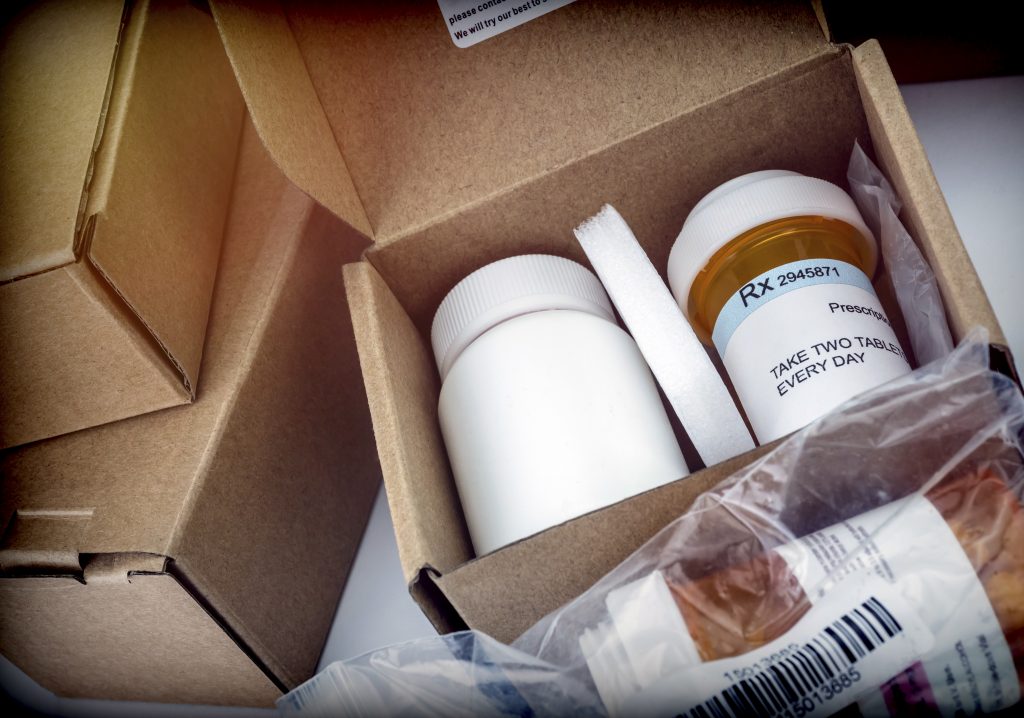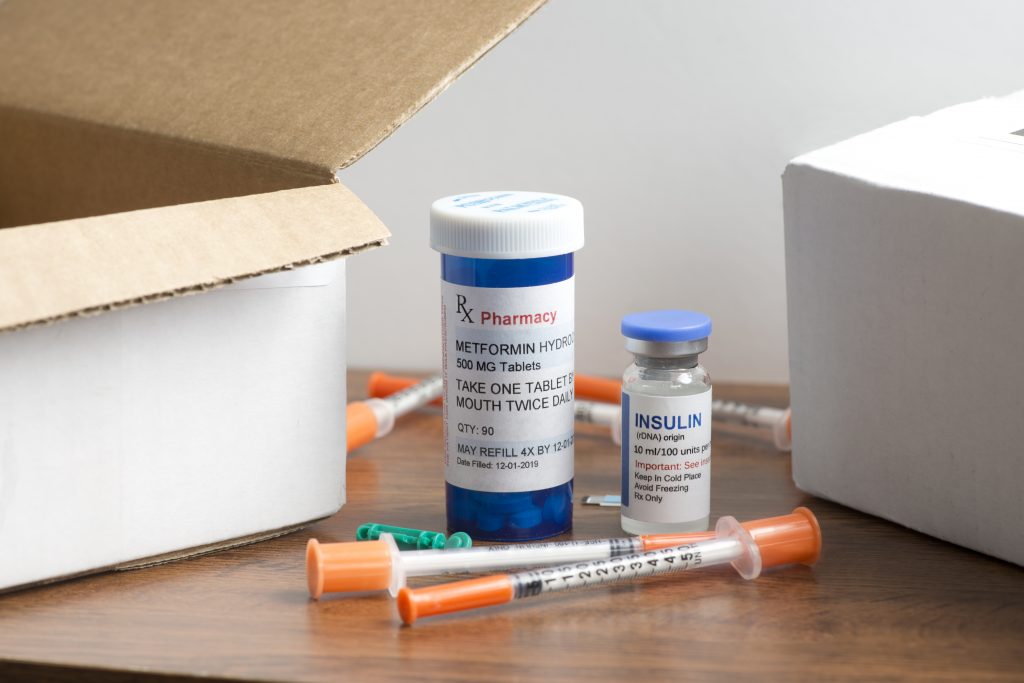
Volume 6 Issue 9, April 29, 2019
With thousands of pharmacy professionals coming together in Las Vegas over these next few days for Asembia's 15th annual Specialty Pharmacy Summit, this is a good opportunity to examine some of the key trends, developments and disruptions in the retail pharmacy. Here are eight statistics and figures that help paint a clearer picture of where the industry is now and where it may be heading.

1) 5% — Projected compound annual growth rate (CAGR) from 2018-2023 for the global pharmaceutical retail market, according to an Azoth Analytics research report. Analysts note that the independent pharmacy retail segment has witnessed noteworthy growth in recent years attributable to an increasing consumer base together with rising healthcare spending, and they project growth to remain strong in the coming years.
Specific to the North America region, analysts point to "rising healthcare expenditure; increasing cognizance about various respiratory diseases, such as asthma and chronic obstructive pulmonary disease; [and a] paradigm shift of consumers towards organized players which offer high-quality drugs and medicines" as driving the demand for retail pharmacy.
2) 27.6 — Number of prescriptions the average senior age 50-64 filled in 2017, according to an IQVIA report. This figure is up from 25.5 in 2012. We can expect the number of prescriptions to continue to rise for most age groups, and pharmacies are still in a strong position to meet this demand. The same report projected that the outlook to 2022 is for 2–5% net spending on medicines growth, with 1–4% growth in retail and mail-order prescription drugs primarily driven by a large number of new medicines.

3) $70 billion — Approximate price paid by CVS Health to acquire health insurance company Aetna. The deal was finalized in late 2018 (just a few weeks before the $54 billion merger of Cigna and Express Scripts was finalized). While the long-term implications of the CVS/Aetna merger are unknown, the deal will likely have significant implications for retail pharmacy.
As Theresa Rohr-Kirchgraber, MD, past president of the American Medical Women's Association and a founding member of the Doctor-Patient Rights Project, wrote in a CNBC column, "Aetna could … require patients to fill their prescriptions only at CVS pharmacies, severely limiting patient options for where and how they get their medications. Requiring Aetna customers to use CVS pharmacies could also sound the death knell for independent pharmacies and cause drug prices to rise, particularly in underserved communities."

4) $1 billion — Price Amazon.com paid to acquire PillPack, an online pharmacy that packages and delivers medications to consumers, in mid-2018. How significant was the news that Amazon was becoming an even bigger player in the pharmacy business? Shares of Walgreens Boots Alliance, CVS Health, and Rite Aid collectively lost $11 billion in market value on the day news of the acquisition was announced, CNBC reported.
retail pharmacies to participate isn't cut and dry. As a McKesson report notes, participation can affect reimbursement. Criteria required for participation includes more "stringent performance metrics." Once a pharmacy gains access, maintaining the status isn't assured. Unfortunately, choosing not to participate or losing access likely means missing out on a large consumer base.
6) 1,100+ — Number of MinuteClinic locations inside CVS Pharmacy and Target stores in 33 states and the District of Columbia. Just how important are MinuteClinics to CVS? Consider that MinuteClinic opened its first walk-in medical clinic in CVS Caremark in early 2005. One year later, CVS acquired the company. There's been rapid growth since. With the Aetna acquisition completed, some analysts are expecting CVS to undergo a significant change to its business model, leaning heavily on the MinuteClinic.
A report from U.S. News & World Report notes that MinuteClinics are only in 12% of CVS' retail locations and offer about 40% of services typically provided in primary care facilities. Analysts expect CVS to launch more MinuteClinics and expand its offerings. How much? Thomas Moriarty, CVS' executive vice president, chief policy and external affairs officer, and general counsel told a congressional panel last year that CVS is aiming for 90% of primary care services, according to a CNBC report. By giving consumers more reasons to visit a brick-and-mortar location, CVS — and the many other pharmacies now with retail clinics — are helping bolster front-end sales.

7) 61% — Number of community pharmacies offering immunizations, according to the National Community Pharmacists Association website. Administering vaccines has become an effective way for pharmacies to generate revenue. Not only do vaccines represent a new revenue stream, they also provide the same boost to front-end sales as retail clinics.
A Pharmacy Times report notes that, according to one estimate, "A 20% vaccination rate can drive a 6% increase in front-end sales." More good news for pharmacies: The vaccine market is experiencing rapid growth. The Pharmacy Times reports that the market is expected surpass $49 billion by 2022, up from about $32 billion in 2016, at a CAGR of 7.5%.

8) 28 — The number of Albertsons Cos. pharmacies providing a genetic test to mental health patients, according to a Supermarket News report. While a newer trend, don't be surprised if you start seeing more pharmacies following suit and beginning to provide genetic/genomic testing.
Thanks to the success of companies like 23andMe and Ancestry.com offering direct-to-consumer genetic testing, consumers are more interested in and willing to embrace the potential benefits of the testing. Pharmacists are in a great position to provide testing to select patients. The Supermarket News report explains the Albertsons Cos. pharmacies' genetic testing process, which involves pharmacists administering the test and reviewing the results with patients. These services can generate new revenue, grow the pharmacy's consumer base, and further support front-end sales.

During the past decade, Alan has facilitated numerous, diverse M+A transactions in the pharmacy marketplace across the country, as well as providing strategic consultation to national pharmacies and similar organizations. Prior to becoming an M+A advisor, he was a “hands-on” owner and manager in the pharmacy and home infusion healthcare marketplace for over 15 years and successfully sold his pharmacy to a national company after growing and diversifying their income streams in a very competitive market. Alan's specialties in the pharmacy and home infusion marketplace include long term care, retail pharmacy, specialty pharmacy, and home healthcare, and he has attained the URAC Accreditation and Specialty Pharmacy Consultant designations, in addition to other recognitions. His educational background includes a Bachelor of Arts from Rutgers University and a Master of Arts from the John Jay College of Criminal Justice.